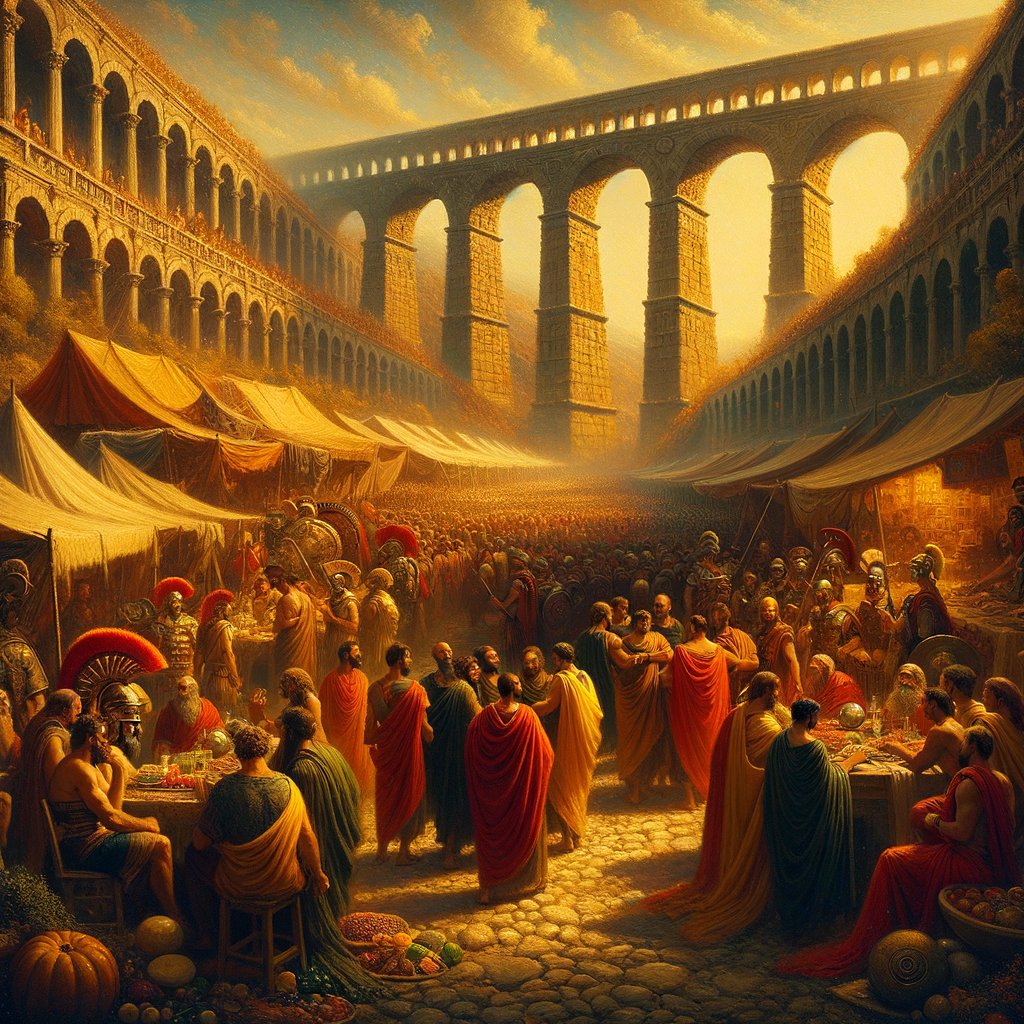
Ancient Greece and Rome: A Comparative Study
Imagine stepping into a lively marketplace in ancient Greece, where the air is filled with the aromas of olives and herbs, and the exchange of ideas is as plentiful as the flowing wine. Now envision the grandeur of Rome, with its wide roads and majestic aqueducts, buzzing with the life of a vast empire. Both of these civilizations form the very foundations of what we now call Western civilization. But how did each culture leave its unique mark, and how do their influences continue to shape our world today?
Philosophers and City-States: The Greeks
Ancient Greece was made up of numerous city-states, each with its own distinct culture and government. Take Athens, for instance—the birthplace of democracy—where philosophers like Socrates would wander the agora, challenging thoughts on ethics and politics. Then there was Sparta, a society that revered military strength above all else. These city-states together built a society that celebrated intellectual pursuit and public discussion.
The political systems and philosophical investigations of Greece have had a lasting impact, influencing modern government and thought. Athenian democracy may not look exactly like ours today, but the core principles of citizen involvement and debate are still central to many nations.
Rome: Empire of Innovation
If Greece was a cradle of ideas, Rome was a powerhouse of organization. From the stunning Colosseum to the vast network of roads connecting its territories, Rome's engineering achievements were nothing short of amazing. Picture soldiers marching with precision along those roads—disciplined and unbeatable.
The Roman influence on legal systems and civil administration is profound. Roman law underpins the legal codes we use today. This sophisticated organization enabled Rome to knit together diverse cultures under a single rule.

Discover a piece of Roman lore with our Capitoline Wolf Enamel Pin, paying homage to the myth of Romulus and Remus. For more, visit this product link.
Influences on the Arts
Arts in both Greece and Rome thrived, even though their styles were different. Greek art often favored idealized beauty and harmony, embodying philosophical ideals. Consider the Parthenon—a masterpiece on the Acropolis symbolizing balance and proportion.
Roman art focused on realism. Their busts and sculptures captured rulers and gods with remarkable truthfulness, displaying the lines and scars of age. This admiration for authenticity influences contemporary art and media today.
Legacy in Modern Society
The echoes of ancient Greece and Rome influence us even now. Greece's contributions to philosophical thought, drama, and arts are gifts we still cherish. Rome's legal systems, engineering, and organizational skills are pillars of modern society.
Imagine a world without democracy or legal rights—a sharp contrast to our modern reality, largely shaped by these ancient powers. How we organize, create, and rule traces a direct line to these remarkable societies.
Concluding Thoughts
Exploring the legacies of ancient Greece and Rome reveals why they remain subjects of study and admiration. Their contributions aren't just historical remnants but vibrant threads in the fabric of our everyday lives. By appreciating their similarities and differences, we gain not just historical insight, but a clearer vision of the world we aspire to create.
Without Greece's philosophical roots or Rome's organizational genius, our modern world would be unrecognizable. In echoing forums and once-busy halls, their timeless stories urge us to remember, ponder, and honor their journeys that have shaped our world.
Whether through a philosopher's teachings, a soldier's disciplined march, or the skill of an artist, these ancient giants' legacies continue to inspire and guide us. As we trace the grand narratives they left, we see clearly that their stories are indeed our own chronicles.
How did ancient Greece and Rome influence modern governance?
Ancient Greece pioneered democracy, particularly in Athens, emphasizing citizen involvement. Rome contributed a sophisticated legal system, forming the basis of many legal codes today.
What are the key differences between Greek and Roman art?
Greek art focused on idealized beauty and harmony, while Roman art prioritized realism, capturing lifelike details and authenticity.
How do ancient Greece and Rome influence modern society?
Their impact is seen in governance systems, architectural styles, arts, and philosophical ideas, all of which continue to shape contemporary society.

